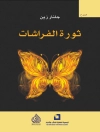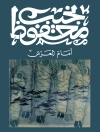Seminar paper from the year 2011 in the subject Didactics for the subject English – Literature, Works, grade: 2, 3, Ernst Moritz Arndt University of Greifswald, language: English, abstract: We all live in a society where the fear of the surveillance state is definitely valid. In a wide range of countries all over the world everyday life is monitored by cameras, credit card transactions, satellites or phone tapping to name but a few examples. ‘There are up to 4.2m CCTV cameras in Britain – about one for every 14 people’ according to an BBC News article from 2006. It’s safe to assume that this number increase steadily and is still higher up to the present day. More recently, the social network Facebook hit the headlines in view of the fact that an Austrian law student requested all information the company had on him. He later received a parcel including 800 pages of personal information detailing Facebook events he had responded to, places he had checked-in, IP addresses where he last used the site, and other private details. Most of the user data was actually deleted by the student but still available for the operators of the social network (cf. Cyrus Farivar 30.09.2011).
It’s quite remarkable that these current issues of surveillance and data piracy are similarly picked up on dystopian novels at the beginning of the twentieth century. George Orwell’s Nineteen Eighty-Four can be cited as one of the best examples and it sometimes seems that we are not far from Orwell’s world. The populace of his fictional society is monitored by a two-way telescreen in every condition of life. By doing this, The Party has wide influence on its adherent’s behaviour. One of the most significant aspects is thereby the manipulation and repression of human sexuality and its importance for the strong government. This is also true for the work of Aldous Huxley. His dystopian novel Brave New World was published nearly two decades before the origin of Orwell’s Nineteen Eighty-Four. Besides George Orwell, he is another significant English writer of the so-called dystopian fiction and with Brave New World he provided a good basis of comparison to Nineteen Eighty-Four.
This term paper should examine differences and similarities between Huxley’s and Orwell’s visions of the future with focus on the aspect of sexual repression. Besides the comparison, this form of repression will be examined closely in view of its purpose for the existence of both fictional states. Starting from the background, different areas of life will be analysed in the main part before giving a comparison to our society today. In conclusion a review on the topic will be given.
Felix B.
Sexual repression and its significance in Orwell’s ‘Nineteen Eighty-Four’ and Huxley’s ‘Brave New World’ [EPUB ebook]
Sexual repression and its significance in Orwell’s ‘Nineteen Eighty-Four’ and Huxley’s ‘Brave New World’ [EPUB ebook]
Beli ebook ini dan dapatkan 1 lagi PERCUMA!
Bahasa Inggeris ● Format EPUB ● Halaman-halaman 32 ● ISBN 9783656817666 ● Saiz fail 0.3 MB ● Penerbit GRIN Verlag ● Bandar raya München ● Negara DE ● Diterbitkan 2014 ● Edisi 1 ● Muat turun 24 bulan ● Mata wang EUR ● ID 4036986 ● Salin perlindungan tanpa












